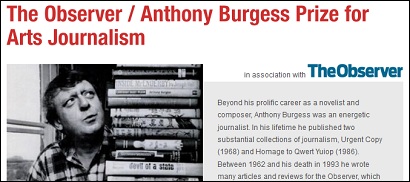In 2006 the Information Commissioner’s Office published a report, ‘What price privacy”, which along with other cases shone a light on the ‘Operation Motorman’ investigation into the use of a private investigator by the media to obtain personal information, which according to the report was often through a deception process referred to as ‘blagging’.
Journalists have a voracious demand for personal information, especially at the popular end of the market. The more information they reveal about celebrities or anyone remotely in the public eye, the more newspapers they can sell. The primary documentation seized at the premises of the Hampshire private detective consisted largely of correspondence (reports, invoices, settlement of bills etc) between the detective and many of the better-known national newspapers – tabloid and broadsheet – and magazines. In almost every case, the individual journalist seeking the information was named, and invoices and payment slips identified leading media groups. Some of these even referred explicitly to ‘confidential information’.
The report, which also includes extracts from a ‘blaggers’ training manual, claimed that the evidence documented “literally thousands of section 55 offences” (Data Protection Act) with more than 300 journalists identified.
Later that year, in a follow-up entitled ‘What price privacy now’, the Commissioner reported on the response of various national organisations to the earlier publication. In the report he also decided, in the public interest, to list the publications identified from documentation seized during the Operation Motorman investigation, the number of transactions they were positively identified as being involved in and how many of their journalists (or clients acting on their behalf) were using these services.
It should be noted that while the table is dominated by tabloid publications they are far from being alone. Certain magazines feature prominently and some broadsheets are also represented. The Commissioner recognises that some of these cases may have raised public interest or similar issues, but also notes that no such defences were raised by any of those interviewed and prosecuted in Operation Motorman.
Top of the list was the Daily Mail, with a reported 952 transactions and 58 journalists/clients, closely followed by the Sunday People with 802 transactions and 50 journalists/clients. Broadsheets also appeared, the Observer with 103 transactions and 4 journalists/clients and the Sunday Times with 52 transactions and seven journalists/clients. No newspaper was ever prosecuted, according to reports.
At the time the Observer, owned by the Guardian Media Group, issued a statement from its editor Roger Alton, citing a defence in most cases.
Yes, the Observer has used the services of an outside agency in the past, and while there were strong public interest defences for most of those cases, it is possible that some of the inquiries did not sufficiently fit that criteria. As a result, I have now taken steps to ensure that no inquiries will be made through outside agencies unless I believe that there is a compelling public interest to do so.
This week, Journalism.co.uk learned that the Observer is now seeking to clarify the distinction between this case and the phone-hacking scandal which saw a News of the World journalist and private investigator jailed in 2007. According to the paper, there has been some “confusion” within the media between the two cases and the involvement of the Observer.
As a result the Observer’s readers’ editor Stephen Pritchard is now preparing a piece for the paper looking back at the Operation Motorman events and explaining the steps taken by the Observer following the report. This week a spokesman for the Observer told Journalism.co.uk:
The ICO report did not concern hacking (a criminal offence without any public interest defence in law), but instead concentrated on potential offences under the data protection act to which there is a public interest defence.
Given the confusion the readers’ editor of the Observer is preparing a piece to clarify this distinction, recap what happened at the time, and explain the steps taken by the Observer following the ICO report.
None of the many newspapers and magazines named in the report were prosecuted. However, Roger Alton, editor of the Observer at the time, issued a public statement making clear that it was not acceptable to use external agencies unless there was ‘a compelling public interest to do so’. The company also subsequently launched a series of training sessions for staff on the implications of the Data Protection Act.
There are many questions related to Operation Motorman and the Observer that people still want answered. This letter from one concerned reader, sent to the readers’ editor last week, raises some of those, such as were the journalists involved suspended or are they still employed by the Observer or the Guardian?
It’s now a case of waiting to see if these will be answered in the Observer’s column, expected in the next couple of weeks.

 “I was 11 in December 1989 (…) That New Year, the Observer devoted its colour supplement to speculation about what London might be like in 20 years – in 2010. I was mad for cityscapes, sci-fi and futurology, and I really liked the pictures and some of the ideas in this colour supplement, so I kept it. About seven years ago, when my parents moved house, I found the magazine while clearing out my old room – I refrained from throwing it out, thinking it would be interesting to see how it held up in 2010. And here we are. How did they do?”
“I was 11 in December 1989 (…) That New Year, the Observer devoted its colour supplement to speculation about what London might be like in 20 years – in 2010. I was mad for cityscapes, sci-fi and futurology, and I really liked the pictures and some of the ideas in this colour supplement, so I kept it. About seven years ago, when my parents moved house, I found the magazine while clearing out my old room – I refrained from throwing it out, thinking it would be interesting to see how it held up in 2010. And here we are. How did they do?”